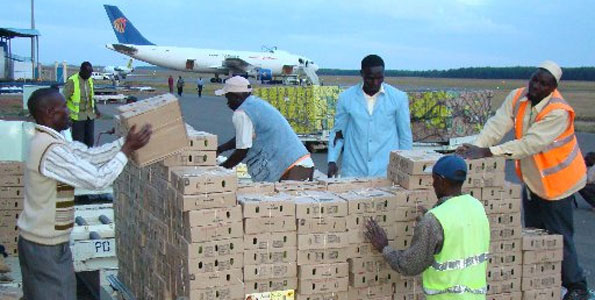Treasury resumes horticulture cash guarantees
Treasury has resumed the once suspended cash guarantees meant to grow the horticulture sector through backing them with the International Monetary Fund (IMF) Special Drawing Rights (SDRs).
A US$30 million Horticulture Revolving Fund (HRF) was launched in September 2022 to capacitate local farmers to boost production and tackle challenges related to the unavailability of appropriately structured financing for short to long-term expenditures.
“It is hereby notified, in terms of section 300(3) of the Constitution of Zimbabwe, read with section 20(1) of the Public Debt Management Act (Chapter 22:21), that the Minister of Finance, Economic Development and Investment Promotion, has issued a Cash Covered Government Guarantee backed by the Special Drawing Rights (SDR) under the terms and conditions specified,” the guarantees read.
Government guaranteed three horticulture projects to the tune of US$2,3 million.
An amount of US$2 million was loaned to Cicada Katiyo who are producing avocados and macadamia in order for them to increase production.
Treasury said: “The guarantee is surety to CBZ Bank Limited that Government will honour 80 percent of Cicada Katiyo Private Limited’s obligations on the loan facility in the event that it defaults on its contractual obligations. The loan facility amount is US$2 million.
The total amount covered by the guarantee is an amount not exceeding $1,6 million in addition to accrued interest.
Cicada Katiyo, according to the terms of the loan facility, will use it to finance avocado and macadamia nuts farming operations.
The second guarantee was for a loan of US$100 000 extended to Ripe On by NMB Bank for expansion of their production.
“The guarantee is surety to NMB Bank Limited that Government will honour 80 percent of Ripe On Private Limited’s obligations on the loan facility in the event that it defaults on its contractual obligations. The loan facility amount is US$100 000.
“The total amount covered by the guarantee is an amount not exceeding US$80 000 in addition to accrued interest.
The purpose of the loan facility is for Ripe On to increase production of cherry peppers and peas from 15 hectares to 30 hectares.
Third guarantee was to cover for a loan of US$250 000 between flower producer Forest Lodge Flowers and NMB Bank in case the farmer fails to repay.
“The guarantee is surety to NMB Bank Limited that Government will honour 80 percent of Forest Lodge Flowers Private Limited’s obligations on the loan facility in the event that it defaults on its contractual obligations. The loan facility amount is US$250 000. The total amount covered by the guarantee is an amount not exceeding US$200 000 in addition to accrued interest.
Forest Lodge Flowers will use the loan to finance the expansion of the flower horticulture operations from 15 hectares to 22 hectares.
These guarantees shall remain valid and in force until all amounts due under the terms and conditions of the facility are paid.
Economist, Dr Prosper Chitambara said the Government’s decision to support the horticulture sector through increased cash cover guarantees is strategic for economic growth.
“Horticulture plays a pivotal role in diversifying the economy, creating employment opportunities and fostering export-led growth.
“This move aligns with a broader economic agenda, positioning Zimbabwe as a competitive player in the global horticultural market,” he said.
The horticulture fund is expected to drive enhanced value addition and beneficiation of fresh produce, which will in turn strengthen Zimbabwe’s exports of horticultural produce and farmers are now accessing the funding although uptake is still slow.
There was a slow uptake of the fund as farmers argued that traditional financing models do not necessarily suit horticulture production, particularly where long-term, patient capital is required, that is plantation crop.
Earlier this year the Horticulture Development Council (HDC) had a seminar with funders, farmers and facilitators. HDC presented a framework for an inclusive funding model for plantation crops, which require patient capital and lower interest rates.
The council earlier in the year pledged to continue working with stakeholders as they believe that with the right funding model and policies to support it, the industry could see exponential growth.
Zimbabwe has enormous potential to cultivate and export a variety of agricultural products that are popular in important regional and global markets.
However, in order for the country to realise this potential and boost agricultural export revenue, farmers’ attitudes must be changed. They must approach agriculture like a business and concentrate on market niches that can add value to various high-end goods.
At its peak in 2000, the sector contributed over US$125 million in export revenue.
The HDC estimates that the industry employs 18 700 people and has the potential to quadruple that number over the next four years.
In addition, the sector expects to increase export revenue to US$300 million annually by 2030. — BUSINESS WEEKLY











